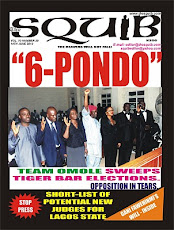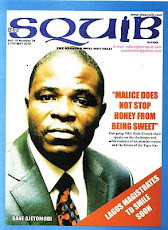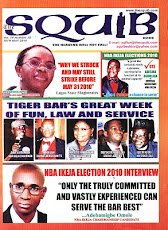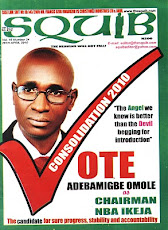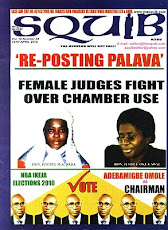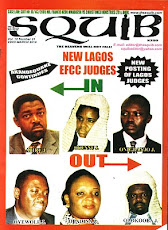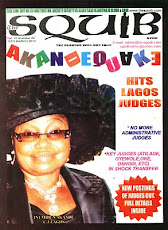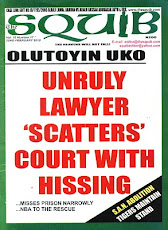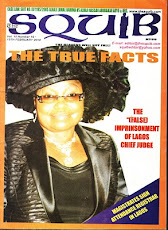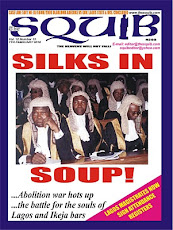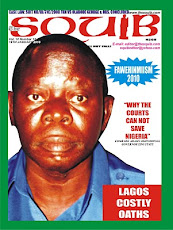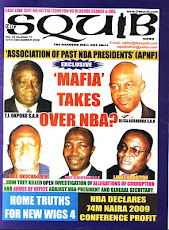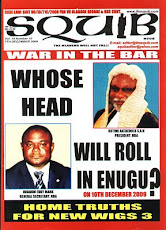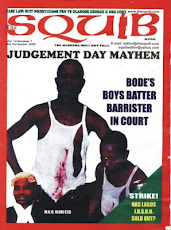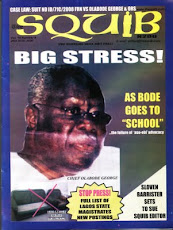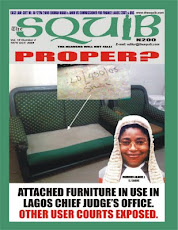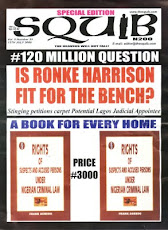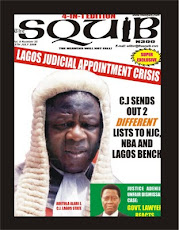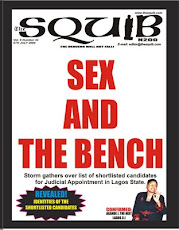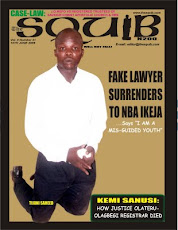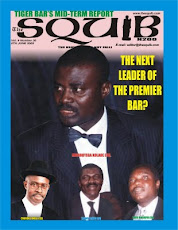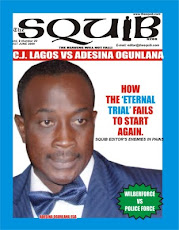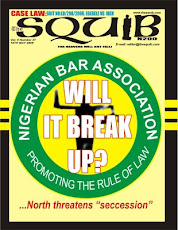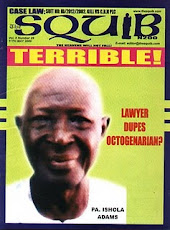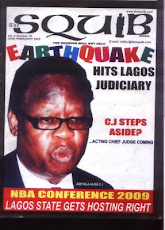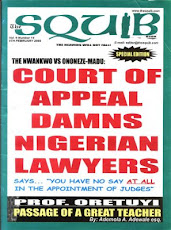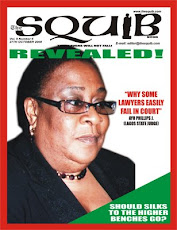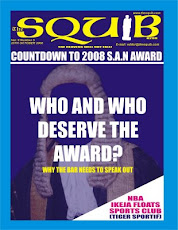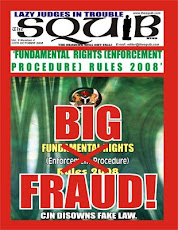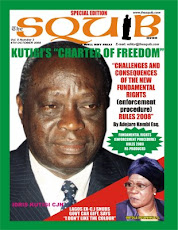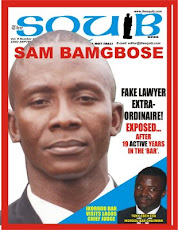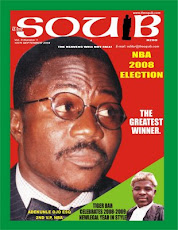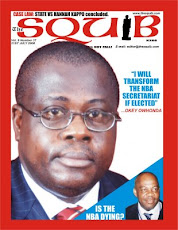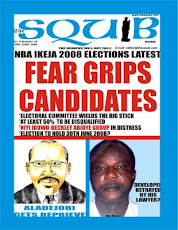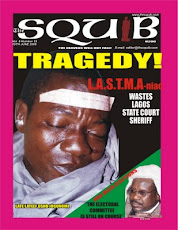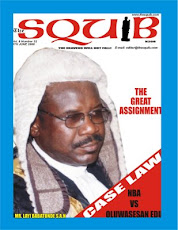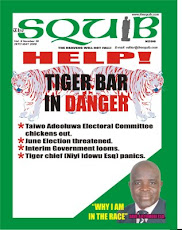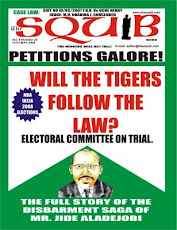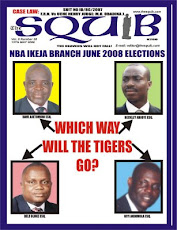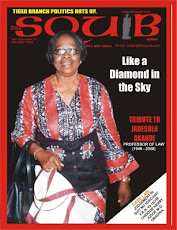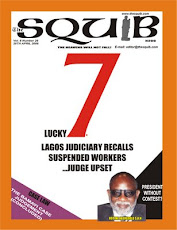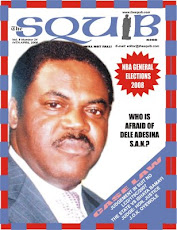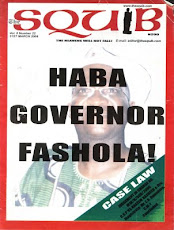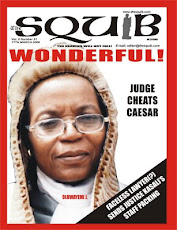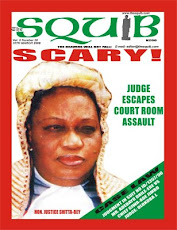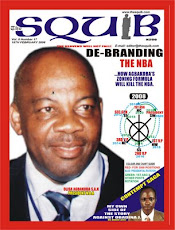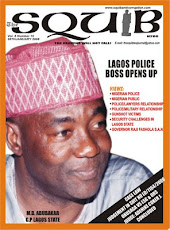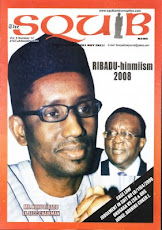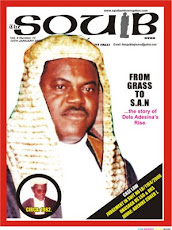
DE - BRANDING THE NBA – EXPOSING THE MAKURDI NEC AGENDA OF AGBAKOBA S.A.N
If the present leadership of the Nigerian Bar Association have their way, elections into offices in the association would never be the same again.
In the association there are fifteen “National Offices to wit - president, 1st Vice - President, 2nd Vice - President, 3rd Vice - President, Secretary, 2nd Assistant Secretary, Treasurer, Financial Secretary, Publicity Secretary, Assistant Publicity Secretary, Welfare Secretary and Legal Adviser.
Before 1998, the elections into these offices were General, that is, all interested members of the association were eligible to vote for all those eligible to contest in any of the offices.
However, after the protracted crisis that plagued the NBA for six years following the scuttled elections in 1992, in Port Harcourt, Rivers State, the general nature of the plebiscite was changed to make the elections a delegate one. Under this arrangement, voting is carried out by accredited representatives (delegates) from each of the branches.
Another fall out of the 1992-1998 crisis was the emergence of political regional/tribal blocks in the Association. Hitherto, the main divide was along ideological lines, the so called progressives (or activists) and the conservatives. Some watchers and historians of the lawyers’ association believed that the emergence of WAZOBIA formations i.e. North, East (South) and West in post 1998 NBA was due to the perception in some quarters that one of the causes of the 1992 crisis was the overbearing influence of westerners (South - West lawyers, mainly Yorubas) in the leadership of the NBA. According to members of that school of thought, majority of the past leaders of the NBA were Yorubas, a development said to be upsetting to other groups, particularly Northerners, notwithstanding that, Western Nigerians were exposed earliest to Western and legal education and were vastly more in numbers in the law profession especially in the 50s, 60s, 70s, and even up till the 80s than other groups of Nigerians.
The concomitance to the emergence of regional/tribal blocks was the emergence of the idea of rotating the prime leadership of the bar, to wit, the presidency among these groups, so that contest into the West would no longer become an-all-comers’ affair. However, another school of thought believed that the idea of rotating the presidency of the NBA ironically was started and championed by the Western regional group under the auspices of the unrepentant irredentists group - Egbe Amofin Yoruba, based in Ibadan, under the leadership of Chief Bamidele Aiku S.A.N went, for cheap political gains and immediate narrow calculations. It was the Egbe leadership in 2000 who negotiated with the leaders of the Eastern Group that, it should be agreed that if Wole Olanipekun S.A.N, a Yoruba and a leaders presidential contestant should step down for O.C.J Okocha S.A.N, an Easterner so to say, then the presidency should go to the West in 2002 and the North should have it 2004.
In the 2000 presidential election there were only three contestants – O.C.J Okocha, Wole Olanipekun. Both Onakoya and Olanipekun are Yorubas. At the end of the day, Olanipekun stepped down and out of the race while O.C.J Okocha went on to defeat Segun Onakoya and become president.
In the 2002 elections which took place in Ibadan, the contest was only between two persons, Onakoya and Olanipekun again, both Yorubas. Olanipekun roundly defeated Onakoya with over whelming support from the East and the North which had apparently bought into the Zoning Formula.
Consequently the 2004 presidential elections, had three of the four contestants as Northerners, to wit Bayo Ojo (Kogi) J.B Daodu (Kogi) and A.B Mahmond (Kano). The firth contestant was an Easterner, Philip Umeh, the Former Secretary - General in 2000-2002 under O.C.J Okocha. The outcome of the election was that Bayo Ojo S.A.N, though a Yoruba complied as a Northerner, while Philip Umeh not only came out last but being an Easterner was derided as an odd man in the election. If the 2004 elections left any one in doubt that the “Zoning Formula” is now an active reality in the NBA, the 2006 elections dispelled any such doubts.
In the 2006 contests, there were only three contestants: Olisa Agbakoba S.A.N, Chris Uche S.A.N and Funke Adekoya S.A.N. Funke Adekoya, a Former 1st Vice – President of the Association and obviously good leadership material came a dismal third position essentially because she was perceived as flying against the arrangement amongst the Regional/Tribal blocks that in 2006, it was the turn of the Eastern Region to produce the president of the NBA.
Before Olisa Agbakoba, the winner of the 2006 presidential contest came on board he had during his campaigns stressed vigorously severally that he would re-organise or revarying the NBA as a professional to make it much more dynamic, efficient and more modern. He had a beguiling catch-phrase for this all important project of his – RE- BRANDING.
Unfortunately more than half through with his tenure as leader of the NBA, the much touched re-branding of the NBA promised by the man dubbed by this magazine as a “ velvet activist” way back in 2006, has not happened. In failing to achieve the amendment of the constitution of the NBA that would pave way for the much advertised administrative wizard in form of Chief Executive officer for the association the NBA has not undergone any in rotating only the presidency of the NBA among regional/tribal groups, Agbakoba is very much interested in extending the rotation virus to half of the available offices of the NBA.
The road to the implementation of this objective started in earnest at the 2007 November NEC meeting of NBA Maiduguri where a guided and depleted NEC allegedly adopted the “policy of inclusion in relation to election of National Officers.”
After the alleged adoption of “inclusion policy” the softer language for zoning formula, by the NBA NEC, the NBA president constituted significant and positive administrative overhauling under Agbakoba. Any changes in the administration of the NBA has only superficial, tangential and a more out – fitting of existent positions to Agbakoba’s tribe of loyalists and followers. Curiously, Agbakoba who many used to take for an activist or even a subscriber to radical politics appears determined to rebrand the NBA by debranding as a Nationalist Organisation and making it an association where leadership opportunities are to be shared out more on the plat forms of regionalism arm tribalism than on merit. While his post 1992 predecessors in office were only content aid wrongly too, a 25 - man Commitee to work out the modalities of actualising the policy.
At a meeting held on 5th December, 2007 in Abuja, the Abudullahi Ibrahim SAN inclusion policy committee resolved that
(a) there will be six (geo-political) zones in the NBA for the purpose of elections
(b) Six out of the fifteen offices in the NBA at the national level would be open to rotation among the six zones.
(c) the 6 affected offices are President, 1st Vice – President, 2nd Vice – President, 3rd Vice – President, General Secretary Assistant General Secretary.
(d) The ‘Inclusion Policy’ will start from 2008. The West will take the Presidency.
See Chart I (2008)
(e) The Presidency alone rotates anti clock wise while the other five posts rotate clock wise on the given chart
(f) Where a post zonal to a particular zone, the zone may adopt a member of that zone as their preferred candidate even where such a person works or lives outside the zone.
In setting up the Abdullah Ibrahim Committee, the president issued them what he called a working paper, authored by himself. In the working paper, Agbakoba asserted without any arguments whatsoever that the Inclusion Policy would help make NBA elections more professional, less expensive and less tedious, as well as make the NBA grow.
Critics of the Inclusion Policy do not share the rosy views of the NBA President and many are determined to come to the Makurdi meeting to scuttle the Inclusion Policy. The first criticism against the Inclusion Policy as firmed out by the Abdullahi Ibrahim Committee is that it is too extensive, affecting as it were a whopping six offices, with the effect that very many aspirants into the offices in the miniature 2008 elections are already locked out.
For example, under the Inclusion Policy, any South Westerner interested in contesting for the post of Secretary of the NBA would have to wait for the year 2012 to hope to actualize his dreams, while in the same year 2012, no candidate from the North Central can even contest in any f the six zoned offices.
A longer look into the prescriptions of the Committee can only yield more distressing discoveries. Undoubtedly, if the Inclusion Policy of Agbakoba is accepted or forced on the association, the policy can only serve to promote balkanization of the NBA along tribal lines, while promoting and glorifying nepotism based on tribal or regional sentiments above quality and merit, since otherwise competent candidates are excluded from certain electoral contests because their organs made them presently ineligible.
It is also feared that the Inclusion Policy will necessarily demoralise otherwise active members from purposeful contribution since their individual yearnings to serve must first of all be conditioned to an artificial appropriate time allocated to them to present themselves for service, which oft times would differ from when they are actually ready and willing to serve.
How the Inclusion Policy will make the NBA elections less expensive and easier to run remain a baffle to the critics. This is because under the policy, candidates would still need to be voted for by voters outside their zones and so would still need to criss-cross the various zones and branches in search of votes.
Critics also wonder what informed the choice of posts adjudged fit to be zoned and those adjudged otherwise. For example, could it mean that an office such as that of the 1st Assistant Secretary-General slated for zoning is more important than the Financial Secretary, Welfare Officers, Publicity Secretary, Treasurer etc!
As far as this magazine is concerned, the Inclusion Policy of Olisa Agbakoba S.A.N is an ill-wind that will bear the association no good in the immediate, near and far future. It is too artificial, unnecessarily, complicated, narrow, undemocratic, schism promoting and merit denoting to be allowed to stand.
If the seemingly innocent “zoning formula” patented by tribal and regional irredentists in 2000 can grow to a monstrous dimension of ‘INCLUSION POLICY’ just eight years later, one wonders what destructive ogre the INCLUSION POLICY of Agbakoba would have turned to in 2015.
A professional Nigeia ought to be forward looking and show the way in what binds us together as Nigerians and not what highlights our differences.
Let those who have ears hear!
































































